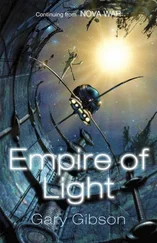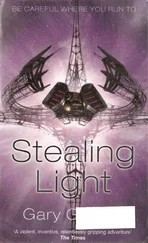I went out and found one at a shopping center.
She was aimless of face, but things had been staged in her hair — demonstrations of metal and feather in the low altitudes of stickied coralline. What she wore wasn’t so much a cover as a kind of kiting, blown about before her as she thugged away at a mood. Whims of string (from a shoe, I think) were ringed around her wrist.
She had just been graduated from the two-year institute outside of town.
I took her out for one of the current coffees.
She asked whether I knew that cold water melted ice cubes faster than hot.
I nodded learnedly.
She mentioned “sleeping in.”
I told her I had been well into my central twenties before it dawned on me that to “sleep with” someone didn’t simply mean to take a companion for your horizontal hours and thereby get sleep domed over you so much the higher than it would if you went home to bed alone. I had thought that was how you gave greater compass, greater volume, to your dreams.
She sipped, and shook her head, and said sleep roamed all over her — it was tramply; it left reddening trackage on her back.
“Not that you’ll ever get to see,” she said.
She wanted my address anyway. I gave her the friend’s. I did get one letter later, a good-bye. It was, she wrote, a “bill adieu.”
I am leaving out the hobbies, the odd jobs, the aplomb I had that just got harder and harder on people.
But I will admit I went to the doctor about the ache in my face. It eventually swelled my cheeks and slit into my sleep.
The doctor called it a “referred” pain. It had arrived, he claimed, from someplace else.
He shunted me off to a specialist, who said the body always waits until the last minute to explain itself to you.
And my wife? I had borne some of the brunt of her fresh starts, seen what helping hands could do with someone like that.
Even her arm — the flesh of it looked tilled, perfected in every lurid turning away. It could withstand scrutinies more spiteful than mine.
She fell in with a man full of biblical quips, brash intelligence about the presaging capers of his Lord. I saw her vivified and steep by his side in the business district one day. I was by myself in the house every other night. I liked the reliable isolations. I spent some time in the book she had been through. There had been obvious violence in her sessions with it. The binding was loose. It barely had a clutch on the leafage anymore. The bookmark kept sliding out.
She came back to me with tiny growths in her groin and a new, striving vagueness of eye.
Then I found a huge laundry room in an apartment tower near the house. For a time, I couldn’t do enough laundries there. Nobody caught on that my basket was practically empty. I would enchant every machine with dollar-store detergent, then get the things gushing and thumping through their cyclicals.
I confined myself to one item per load. This ensured a cautious, tyrannical clean.
Even better, there was a lost-and-found, a big cardboard box torn down a little from the top. I started bringing things to kick in — whatever clamored up toward me from the lowest of my life. The thinking must have been that I was most devoted to people I had not yet met, that I was best at laying out courtesies in advance. Thus the box filled mostly with helpings from my wardrobe: shirts gathering further shine; slacks that were negligences of hemmed fabric, down whose twinned chutes my legs had once gone their separate ways.
My best friend and I were now living in an underhanded familiarity that, from farther off, might have been taken for an advance in attachment.
We made it to the yard sales and brought back further caprices of the culture. Once it was just a mug whose hectic lettering said, “read a magazine tonight!”
But nothing much was flaring in my heart.
One night I told him that our lives differed in unbeautifying ways. I told him our bodies could never really be in league.
I pointed at his hand. It had just left mine and was started on its way elsewards.
His fingers always looked as if they were squabbling among themselves, undecided about what might next be deserving of touch.
My wife was walking a fine line, wearing herself away from me.
Months broadened in their burden.
Then the advent of her scandal: sprigs of intimate hair trapped, specimenized, in the clear sealing tape all over the holiday packages that went out one noon to “influentials.” Her defense? Anything hailing from a body had to be worthy of at least flitting reverence on your way to the sink.
But cracks had started forming in her words. Things ever after were fissured in her speech.
Then the girl wanted to see me after all. Told me to meet her in the new wing of the closest mall. There was a swinge of ambition in her step as she saw me drawing near.
She hated all her friends now, she said — preeners mostly, demanding dripling sorrows of every instant in her shadow. And what about me? she wondered. Did people my age have friends?
I mentioned a couple of people who lifted emotions without giving credit yet expected originality in any affections coming from me.
“Tell me your wife’s side,” she said.
One evening, I caught sight of a man who had assumed himself anew in my slacks, my shirt, my jacket and shoes.
He was startleproof in some sort of painless hurry, apparently.
The look he gave me was not a grateful one, or even salutatious, but I felt at large.
One night the three of us were in our right minds around the same table. There might have been a birthday. I remember that something consolatory had been ciphered into the icing of a store-baked cake.
I grabbed her hand.
Released its fingers — or set them out, rather, in severalizing meander — onto his arm.
I must have thought I was getting something exalted on one or the other.
The fingers, I could see, were stuck.
I got up, feeling scanted and surpassed.
My life now dates from that day.
Worse, I had been the husband, most recently, of a sweetly unpoised, impersonal woman, and in the months following the divorce (it would not have been worth the bother of an annulment, she had said; annulments were reserved for circumstances even more gloriously unfornicatory than ours), I had been getting sicker and sicker of living in conclusion in the little riverless city to which I had always returned after any kind of body blow or setback to my likelihood. But the divorce somehow didn’t feel finished to me, I didn’t feel riddled with it, or partitioned any farther from her; and having learned, from some florid passersby, that she was living in lower Europe with an aunt or an uncle with small sprouts of money, or sponging off somebody at least welcomingly kindred, I crossed the ocean to see what else there could be that might extinguish what I felt persisted between the two of us. There had to be a surer way to consummate the end of things already ended.
I was a stare-about on the nightlong flight, pacing the aisles, pushing aside every meal and snack, hogging the lavatory for half-hours at a time, thinking that my thinking was, “You don’t want to go over it again, how you go from being a part to being apart.” And how true, for marriage had given us the chance to cultivate our mussed lonelinesses shoulder to shoulder, my lunatic of a penis uncoaxable into even the simplest of bedstead sex.
People were plugged up enough as it was.
We— I —landed at length in some city not even worth my putting the stony name to it here, because I wouldn’t want anyone feeling envious that I, of all tossed-aside American males, had made such a crossing, especially since from the instant I put myself out onto via this and rue that, I paid the place no mind, took in none of the sights, ate only in the hamburger hideouts of tourists afraid of their own shadow. The hotel was a questionable piece of work, nothing like my apartment, that seventh heaven of meds and stink bugs, where my dreams either sneaked from sore point to sore point or beat me to a pulp.
Читать дальше












